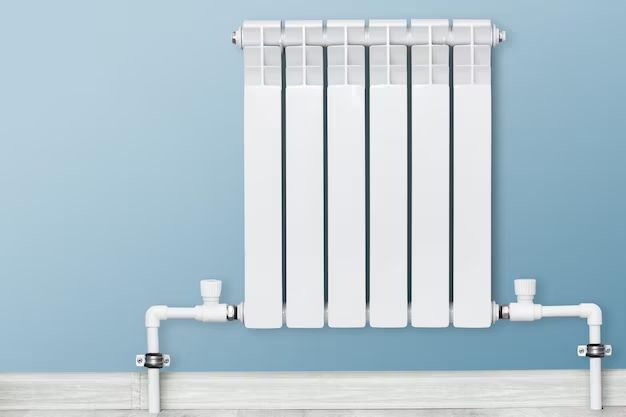Choosing the right type of heater for your bathroom can make a big difference in comfort and efficiency. The bathroom is often the coldest room in the house, so having a good heater is important. There are a few main options to consider when selecting a bathroom heater:
Page Contents
Electric Heaters
Electric heaters are a popular choice for bathrooms because they are inexpensive to install and operate. The main types of electric bathroom heaters include:
- Wall Heaters – These are installed on the wall and work similarly to a space heater. They warm up a room quickly.
- Ceiling Heaters – Ceiling mounted electric heaters distribute heat evenly throughout the room.
- Electric Radiators – Resemble oil filled radiators and use electric heating elements. They don’t provide instant heat but do provide steady, even warmth.
- Electric Towel Warmers – Designed like a radiator but with bars for holding towels. Help provide ambient warmth while also warming towels.
Pros of electric bathroom heaters:
- Inexpensive purchase and operating costs
- Easy to install – often just require a plug in
- Small, discreet sizes available
- Wall and ceiling heaters provide instant heat
- Towel warmers provide added utility
Cons of electric bathroom heaters:
- Wall mounted units take up wall space
- Can dry out air leading to dry skin
- Not as effective for heating large bathrooms
- Radiator style heaters don’t provide quick heat
Gas Heaters
Gas bathroom heaters provide an efficient way to warm a bathroom. Natural gas or propane can fuel these units. Types of gas bathroom heaters include:
- Wall Heaters – Resemble an AC unit and mount on the wall. Use a gas burner to warm air.
- Overhead Infrared Heaters – Mounted on ceiling and heat via infrared energy. Don’t heat the air but rather objects below.
Pros of gas bathroom heaters:
- Very effective at warming bathrooms quickly
- Wall mounted units don’t take up floor space
- Infrared heaters provide targeted warmth
- Don’t dry out the air like electric heaters
Cons of gas bathroom heaters:
- More expensive up front cost than electric heaters
- Require installation of gas lines if none present
- Ventilation required for gas wall heaters
- Infrared heaters don’t provide whole room ambient warmth
Hydronic Heaters
Hydronic or hot water bathroom heaters use heated water running through pipes or radiators to warm a room. Types include:
- Hydronic Radiators – Resemble electric radiators but circulate hot water rather than use electric coils.
- Underfloor Heating – Systems of pipes laid under the floor that heat the room from the ground up when water runs through them.
Pros of hydronic bathroom heaters:
- Provides very even, comfortable warmth
- Radiators can also warm towels
- Underfloor heating doesn’t take up wall space
- Can be tied into home’s central heating system
Cons of hydronic bathroom heaters:
- Most expensive systems to install
- Take longer to initially heat up a room
- Underfloor heating effectiveness depends on flooring type
- Need boiler and pump system
Factors to Consider
When deciding what type of bathroom heater is right for your home, take into account:
- Bathroom size – Larger bathrooms need more heating power.
- Your budget – Hydronic systems cost more to install than electric heaters.
- Efficiency – Gas heaters tend to heat bathrooms quicker and more efficiently.
- Your climate – Colder regions do better with very effective hydronic or gas heating.
- Existing infrastructure – If no gas lines present electric or hydronic is easier to install.
- Wall space – Wall heaters require open wall space to mount.
Also consider safety features like auto shut off timers and tip over switches. Programmable thermostats help manage costs as well.
Comparison Table
| Heater Type | Purchase Cost | Operating Cost | Efficiency | Heat Method |
|---|---|---|---|---|
| Electric | Cheap | Cheap | Good | Heated coils |
| Gas | Moderate | Moderate | Excellent | Gas burner |
| Hydronic | Expensive | Moderate | Excellent | Heated water |
Small Bathroom Recommendation
For a small bathroom, an efficient wall mounted electric heater is likely the best choice. Wall heaters warm up a bathroom quickly while taking up minimal space. Just be sure to get one with a high wattage and built in fan to optimize heating performance. Pair it with a programmable thermostat to manage costs.
Master Bathroom Recommendation
Larger master bathrooms do well with gas wall heaters or overhead infrared heaters. Their greater power and efficiency compared to electric heaters make them ideal for heating large volumes of space. If installing new gas lines isn’t feasible, consider a hydronic system tied into your home heating system for comfort and even warmth.
Kid’s Bathroom Recommendation
The safest heaters for kid’s bathrooms are wall mounted electric heaters with tip over auto shut off features. Place them high up on walls out of reach of children. Low profile electric radiators are also very safe and provide gentle ambient warmth. Just ensure whatever heater you choose has child safe protections built in.
Conclusion
Choosing the right bathroom heater depends on your space, budget, and heating needs. Small electric wall heaters provide an affordable option well suited to small baths. For larger rooms, gas wall heaters and infrared heaters offer greater power and efficiency. Hydronic heaters give the most luxurious warmth but also come at a higher cost. Follow safety best practices by looking for units with tip over auto shutoff and timers. With some thoughtful consideration of the options, you can stay cozy warm even in the coldest bathroom.
